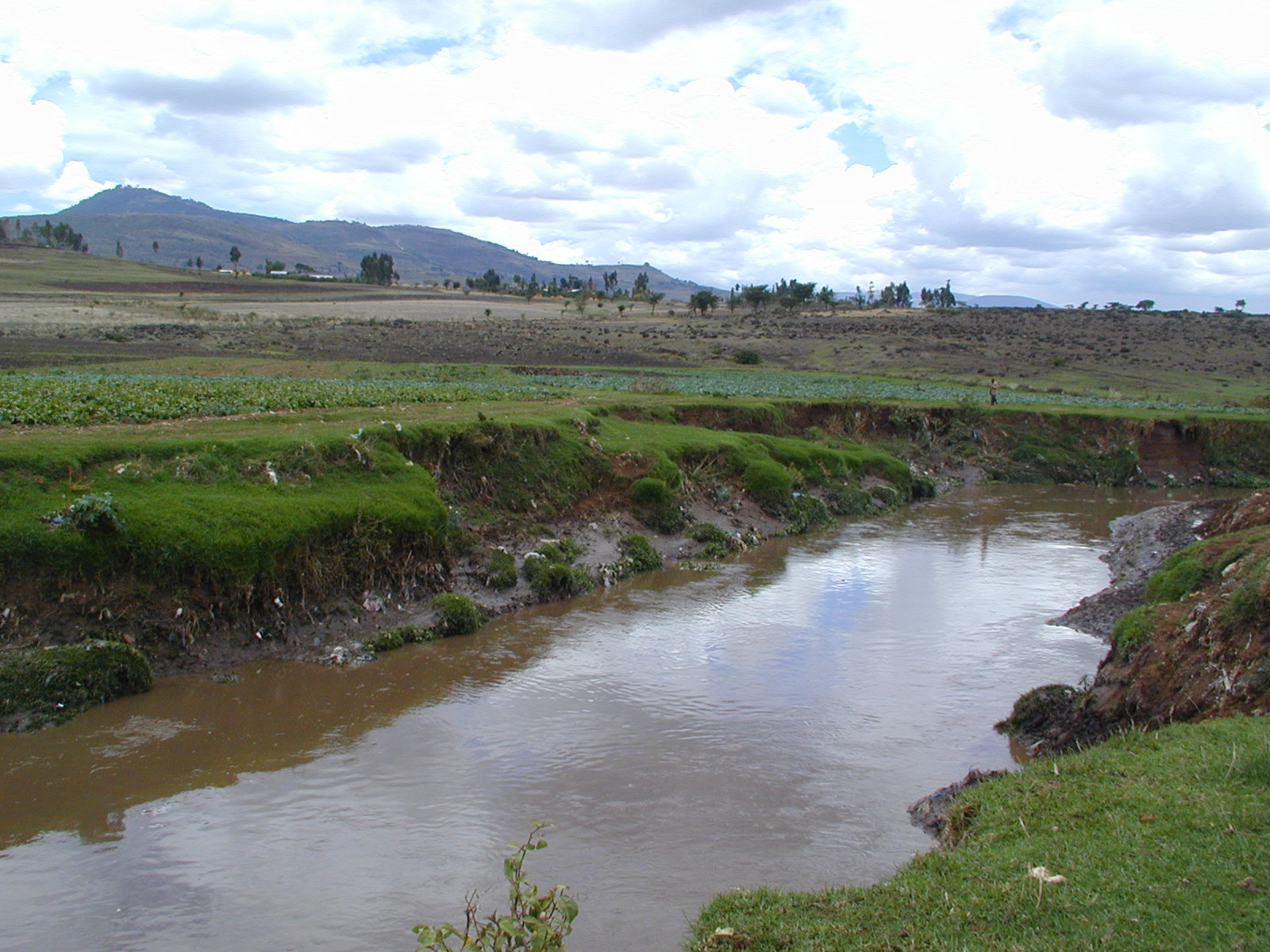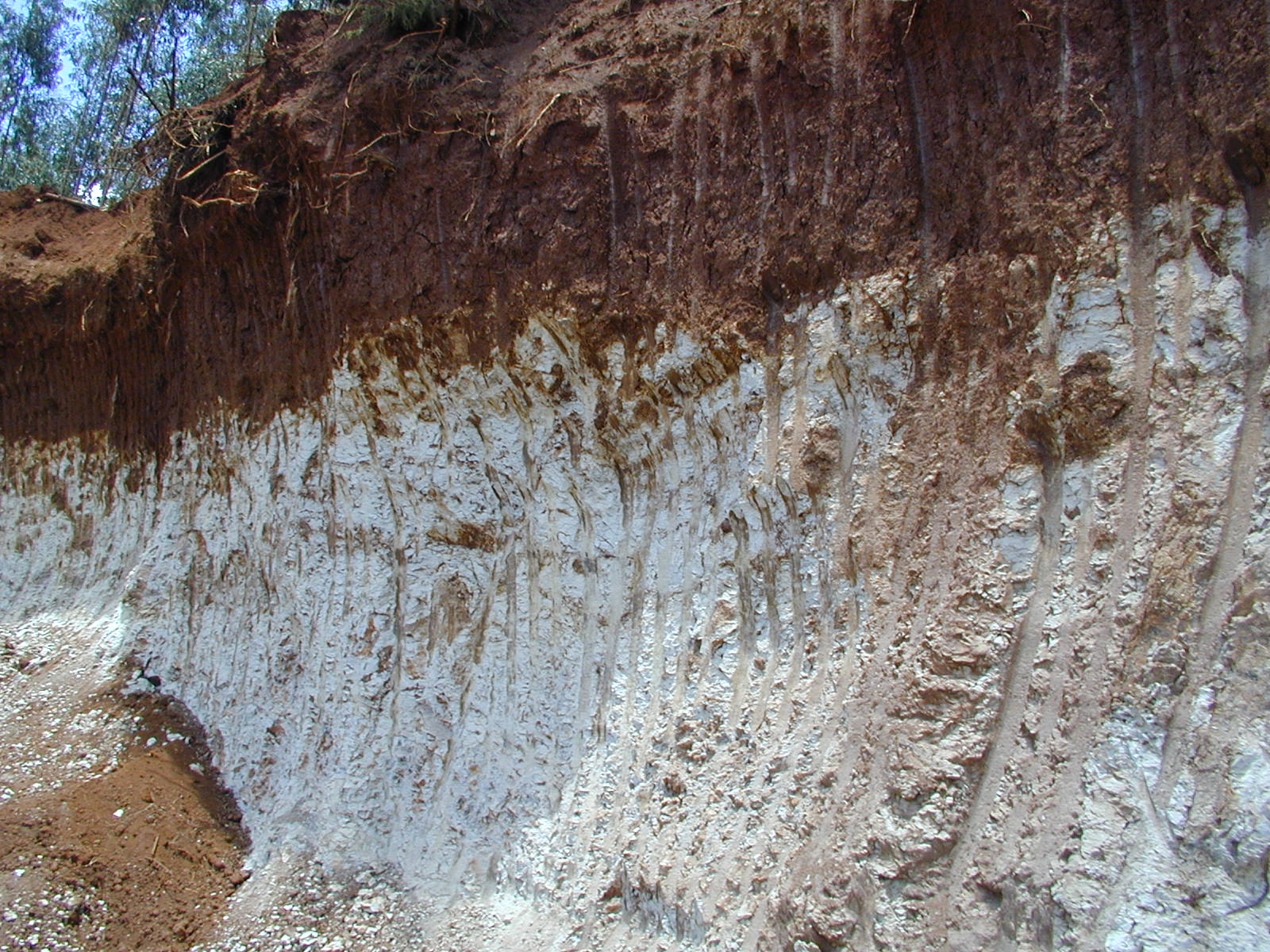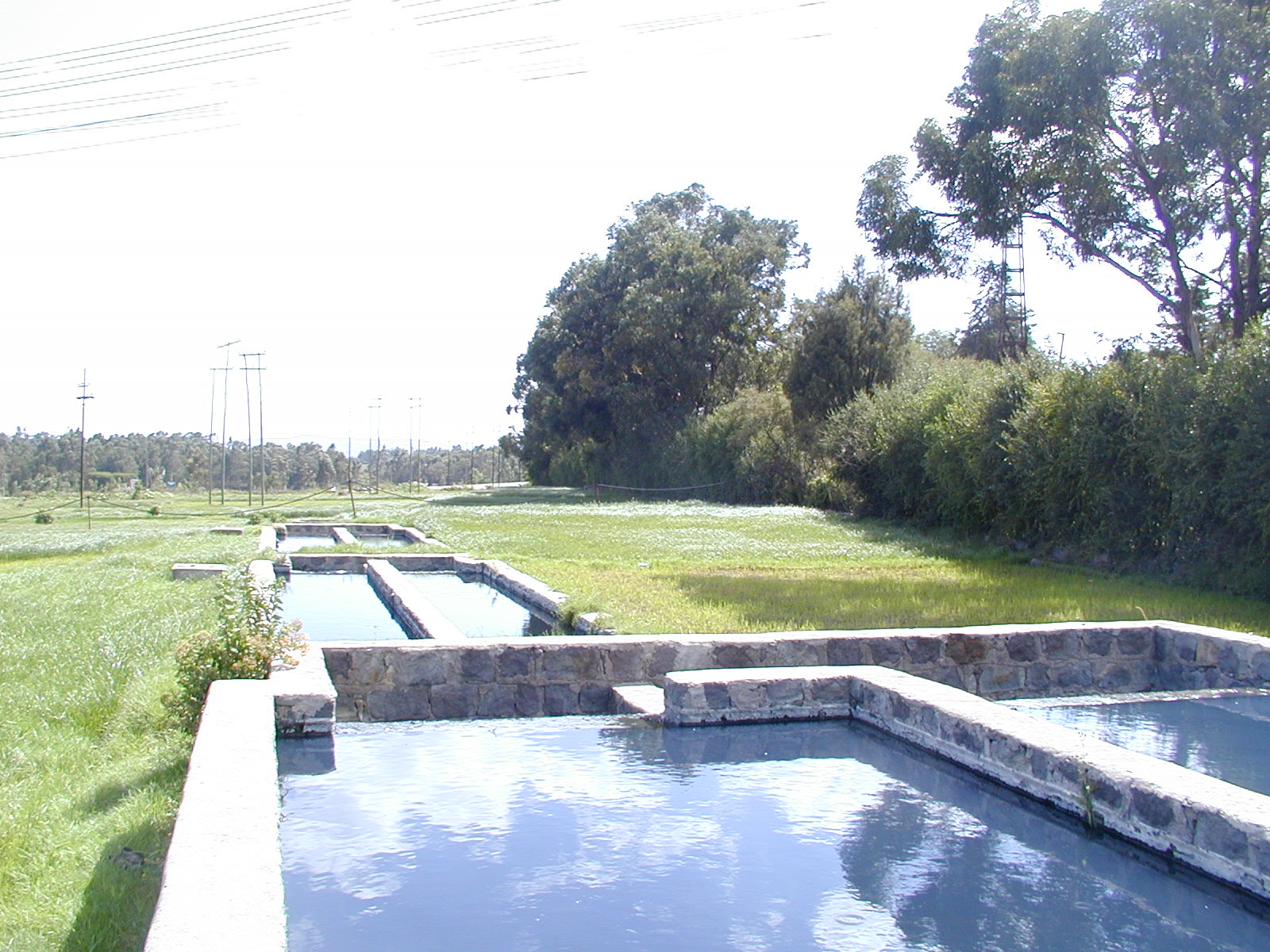Suitability of Local Materials to Purify Akaki Sub-Basin Water
- chair:Arbeitsfeld Angewandte Geochemie
- place:Prof. Dr. D. Stüben
- person in charge:Dr. Habtamu Haile-Tolera
Motivation
|
In this PhD work a great deal of emphasis is given to the application of low-cost naturally occurring mineral deposits in remediation of water resources contaminated by heavy metals in the Akai basin, Ethiopia. Polluted industrial effluents released mostly from tanneries, breweries, wineries, distillers, soft drink, chemical and metal work industries contaminate portable water resources down stream of their sources. The contaminated effluents are released without any further treatment in to the near by open water systems. Downstream rural communities use the polluted water for drinking, household purposes, and irrigation. |
|
|
Textile Factory waste water discharged to the nearby farmland (Akaki, Ethiopia) |
 |
The main objective of my PhD thesis focuses on developing a filter technology that serves to purify these naturally and anthropogenically contaminated water resources. Laboratory based experiments will be carried out to design an efficient and cost effective in-situ filter technique for the rural communities. The basic principle of the remediation technique arises from a filtering system known as GreiFMan (“Geochemische Reinigung von Fließgewässern mit Mangankiesen”) which has been successfully employed to treat water contaminated by Arsenic and Heavy metals. In designing this system, I investigate materials that include kaolinite and different clay minerals), volcanic ash, zeolites, pumice and scoria. |
| The Little Akaki river loaded with suspended particles, solid wastes, toxic industrial and domestic effluents. |
|
The Ph.D. thesis will present results of chemical composition and contamination levels of water samples collected in the field. The chemical, physical and mineralogical characterization of the filter materials will also be presented. Series of filtering experiments will be conducted so as to determine the purification capacities of the materials in retaining heavy metals and nutrients under variable environmental conditions such as pH, ionic strength, time, adsorbent volume, concentration of metals and sample volume.
|
 |
| A potential filter clay deposit for removal of heavy metals from contaminated water (West of Addis Ababa, Ethiopia). |
